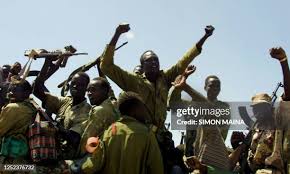
Importance of the Situation in Sudan
The ongoing crisis in Sudan has captured the attention of the international community due to its widespread humanitarian implications and complexities involving political power dynamics. With a rich history that has faced numerous challenges, Sudan stands at a critical juncture where the choices made now will shape its future and impact regional stability in North Africa.
Political Unrest and Conflict
Since April 2023, Sudan has been engulfed in violent clashes as rival military factions, namely the Sudanese Armed Forces (SAF) and the paramilitary Rapid Support Forces (RSF), vie for control. This conflict erupted following months of rising tensions between military leaders following the military coup in October 2021. The power struggle has led to devastating consequences, including thousands of fatalities and widespread displacement of civilians.
Reports estimate that over 5 million people have been displaced within Sudan, while more than a million have fled to neighbouring countries since the fighting began. The civil infrastructure is in tatters, with hospitals, schools, and essential services becoming increasingly inaccessible, leading to a multifaceted humanitarian crisis.
Humanitarian Impact and Response
According to the United Nations, nearly 25 million people in Sudan are now in urgent need of assistance, representing about half of the country’s population. The scale of the humanitarian effort required has prompted a coordinated response from various international organizations, including the World Food Programme and UNICEF, aiming to provide food, medical support, and shelter to affected populations.
However, ongoing hostilities have hindered the delivery of aid, creating an urgent need for a ceasefire that can ensure the safety of humanitarian workers and the people they serve.
International Response
The international community has called for an immediate cessation of hostilities and has initiated diplomatic measures to facilitate peace talks. Various countries, including the United States, Egypt, and Saudi Arabia, are exploring avenues for mediation, but progress remains slow as mistrust deepens among conflicting parties. Recent attempts to establish a truce have met with limited success, as violence continues in many regions.
Conclusion: The Future of Sudan
The situation in Sudan is precarious, with both immediate and long-term implications for the country’s stability and the wellbeing of its people. As violence persists and humanitarian needs grow, the path towards peace remains uncertain. Observers and analysts emphasize that genuine dialogue between conflicting parties, strengthened by international support, is essential for achieving a sustainable resolution to the crisis. The coming months will be crucial for Sudan, as the potential for recovery hinges on a commitment to peace and the protection of human rights.
You may also like

The UKIP Party: Recent Developments and Future Outlook

Qatar’s Growing Influence in Global Affairs
